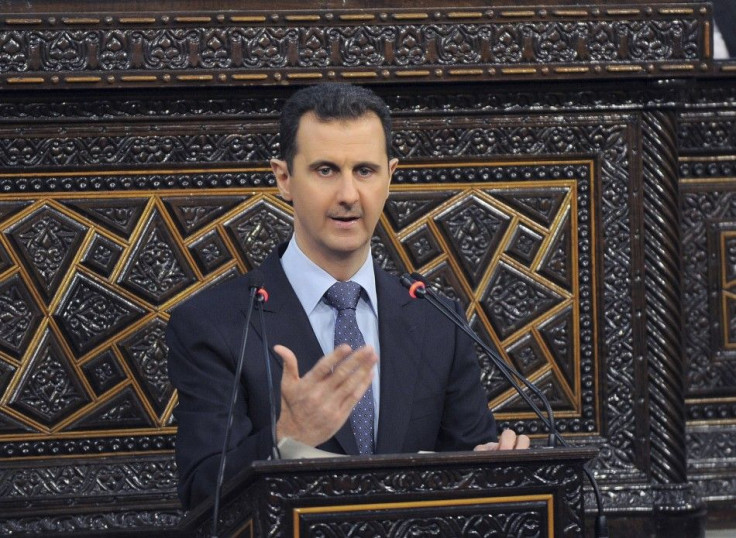Syria Round-Up: Putin Pressed, Assad Doubles-Down

Russian Prime Minister Vladimir Putin is expected to be pressured on the Syrian crisis when he meets with European leaders in St. Petersburg on Monday.
Russia has been opposed to outside intervention in Syria for the duration of President Bashar al-Assad's 15 month-long crackdown in Syria. However, the European Union has been critical of Moscow's stance and is wary that Putin is giving the Syrian regime too much leeway.
We are not for Bashar Assad or for his opponents, Putin said last week. We want to arrive at a situation where the violence is ended and the possibility of a civil war is completely avoided.
Russia and the EU both still support Kofi Annan's peace plan, which has been effectively ignored by all parties in Syria, and European Union foreign policy chief Catherine Aston is imploring Moscow to pressure Assad into pulling his soldiers out of civilian areas.
On Monday, Assad defended his crackdown, claiming again that terrorists and foreign interlopers are responsible for destabilizing the country.
The crisis is not internal ... Rather, it is a foreign war with internal tools, Assad said during his first public address since January.
The truth is that even monsters do not do what we saw, especially in the Houla massacre, Assad said, referring to the brutal slaying of 108 villagers last month. We are facing a real war from outside. Everyone is responsible for defending the homeland.
One of the foreign bodies that Assad says is meddling in Syrian affairs is Saudi Arabia. On Monday, the pro-regime Al-Watan newspaper of Syria claimed that Saudi Foreign Minister Prince Saud al-Faisal is using northern Lebanon as a staging ground for attacks on Syrians. Sectarian fighting has broken out in Lebanon in recent weeks, and Syria has accused the Saudis of sending arms to fighters and mercenaries, according to the AFP.
Meanwhile, Syrian rebels killed at least 80 government soldiers during a series of clashes across the country on Saturday, the most in a single day of fighting, according to the Syrian Observatory for Human Rights, although the group claims that three opposition fighters and 29 civilians were also killed.
Troops are vulnerable to heavy losses because they are not trained for street battles and are therefore exposed to attacks, said the Observatory's Rami Abdel-Rahman. What exacerbates those losses is that the army is fighting locals of those towns and villages, whether military defectors or civilians who took up arms against the regime, who know the area inside and out and enjoy public support.
© Copyright IBTimes 2025. All rights reserved.





















